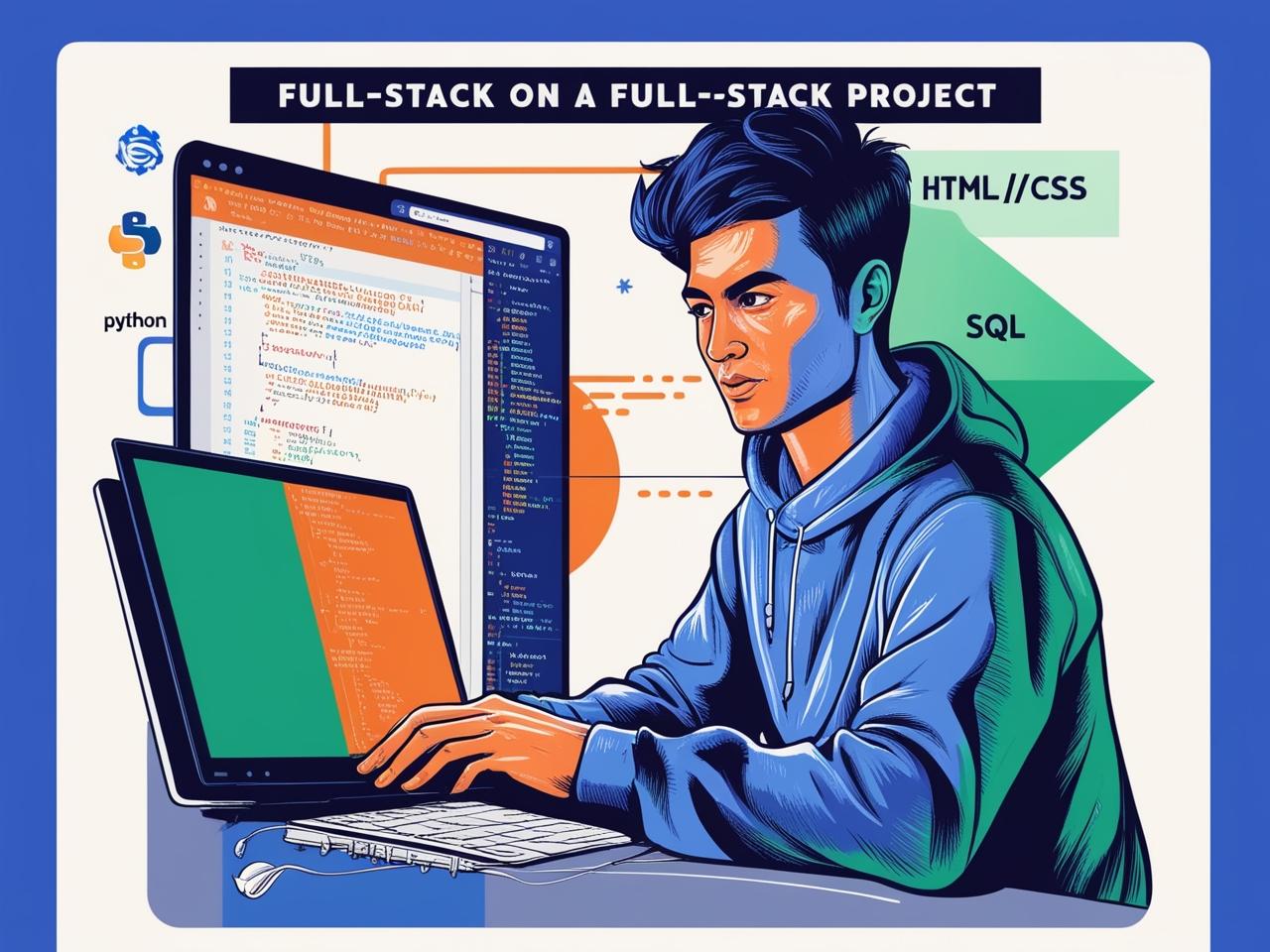Introduction
Python is one of the most popular programming languages, widely used for web development, data analysis, artificial intelligence, and more. When it comes to full-stack web development, Python stands out for its robust frameworks like Django and Flask. In this blog, we’ll dive into these frameworks and understand how they power full-stack development, particularly for students and professionals enrolling in a Full Stack Python Developer Course.
Why Choose Python for Full-Stack Development?
Before exploring Django and Flask, it’s essential to understand why Python is a go-to choice for full-stack development. Python’s simplicity, versatility, and vast libraries make it ideal for both beginners and experienced developers. If you’re pursuing a career in web development, enrolling in a Full Stack Python Course offered by a reputed Python training institute can help you acquire the skills needed to excel in this domain.
A Full Stack Python Developer Course typically covers Python programming fundamentals, front-end development (HTML, CSS, JavaScript), and back-end technologies like Django and Flask. The comprehensive curriculum ensures that learners become proficient in building dynamic and scalable web applications.
Django and Flask: The Pillars of Full-Stack Python Development
Both Django and Flask are open-source frameworks that simplify web development. Here’s an in-depth comparison to help you understand their capabilities:
Django: The Framework for Perfectionists with Deadlines
Django is a high-level Python web framework known for its “batteries-included” philosophy. It comes with built-in tools and libraries to handle various web development tasks, making it a favorite among developers.
Features of Django:
- Automatic Admin Interface: Django generates an admin interface for database management, reducing the need for custom coding.
- Robust Security: It includes tools to prevent SQL injection, cross-site scripting, and other security vulnerabilities.
- Scalability: Ideal for large-scale projects, Django’s architecture supports high traffic and complex functionalities.
- ORM (Object-Relational Mapping): Allows developers to interact with databases without writing complex SQL queries.
Use Cases of Django:
Django is commonly used for large-scale applications, such as e-commerce platforms, social networking sites, and content management systems.
Flask: The Lightweight Champion
Flask is a micro-framework designed for simplicity and flexibility. It doesn’t come with built-in libraries, allowing developers to integrate third-party tools as needed.
Features of Flask:
- Minimalistic Core: Flask provides only the essential components, letting developers build applications from scratch.
- Customizable: Offers complete control over the application’s structure and components.
- Lightweight: Ideal for small to medium-sized projects that require quick deployment.
- Jinja2 Templating: Simplifies HTML templating, making the integration of dynamic content seamless.
Use Cases of Flask:
Flask is preferred for lightweight applications, APIs, and prototypes where quick iteration and deployment are required.
Choosing Between Django and Flask
If you’re new to web development, you might wonder which framework to learn first. Your choice should depend on your project requirements and career goals.
- When to Choose Django:
- Working on a complex project with tight deadlines.
- Building an application with built-in user authentication and admin panels.
- Pursuing a role in a large-scale organization.
- When to Choose Flask:
- Developing a lightweight application or RESTful API.
- Looking for more control over your application’s components.
- Preferring flexibility in your development process.
By enrolling in a Full Stack Python Training Institute, you can learn both frameworks and gain hands-on experience in building real-world projects.
Learning Django and Flask in a Full Stack Python Cours
A Full Stack Python Developer Course is the best way to get started with these frameworks. Here’s what you can expect from a high-quality course offered by the Best Python Training Institute:
1. Python Fundamentals
- Syntax and semantics of Python.
- Object-oriented programming concepts.
- Data structures, file handling, and exception management.
2. Front-End Development
- HTML5, CSS3, and JavaScript basics.
- Frameworks like Bootstrap for responsive design.
3. Django Framework
- Setting up a Django project.
- Understanding the MVC (Model-View-Controller) architecture.
- Building and deploying a blog or e-commerce application.
4. Flask Framework
- Setting up Flask for development.
- Building RESTful APIs.
- Using Flask extensions for advanced functionalities.
5. Database Management
- Working with SQL and NoSQL databases.
- ORM techniques in Django.
6. Real-World Projects
- Building a portfolio of projects like social media platforms, chatbots, and REST APIs.
Benefits of Joining the Best Python Training Institute
Choosing the top 10 Python training institutes ensures you get access to the best resources, trainers, and placement support. Here are some advantages:
- Hands-On Training: Practical sessions that help you gain confidence in coding.
- Industry-Relevant Curriculum: Courses designed to meet the current demands of the IT industry.
- Expert Trainers: Learn from experienced professionals who provide insights into real-world applications.
- Placement Assistance: Institutes offering Python training in Hyderabad with placement help students secure jobs in top companies.
- Flexible Timings: Weekend and weekday batches to suit working professionals.
Career Opportunities for Full-Stack Python Developers
Upon completing a Python Full Stack Developer Course, you can explore various roles, including:
- Full-Stack Developer: Work on both front-end and back-end development.
- Python Developer: Focus on developing server-side logic and APIs.
- Web Developer: Build interactive and user-friendly web applications.
- Software Engineer: Design and implement software solutions using Python.
With a growing demand for Python developers, enrolling in a Full Stack Python Training Institute can be a game-changer for your career.
Tips for Choosing the Right Python Course Institute
- Check the Curriculum: Ensure it covers Django, Flask, and other essential topics.
- Look for Projects: A good course includes multiple projects to enhance your practical skills.
- Verify Placement Support: Top institutes provide assistance in securing interviews and job placements.
- Read Reviews: Look for feedback on institutes to find the best Python training institute in your area.
- Visit the Institute: If possible, visit the Python course institute to interact with trainers and understand the learning environment.
Conclusion
Django and Flask are indispensable tools for any aspiring full-stack developer. While Django offers an all-in-one solution for large-scale applications, Flask provides flexibility for lightweight projects. By enrolling in a Full Stack Python Developer Course, you can master these frameworks and build dynamic web applications that meet industry standards.
Whether you’re a beginner or a seasoned professional, joining a reputed Full Stack Python Training Institute will give you the skills, confidence, and certifications needed to succeed in your career. Choose the right Python course institute, and embark on your journey to becoming a proficient full-stack Python developer today!









